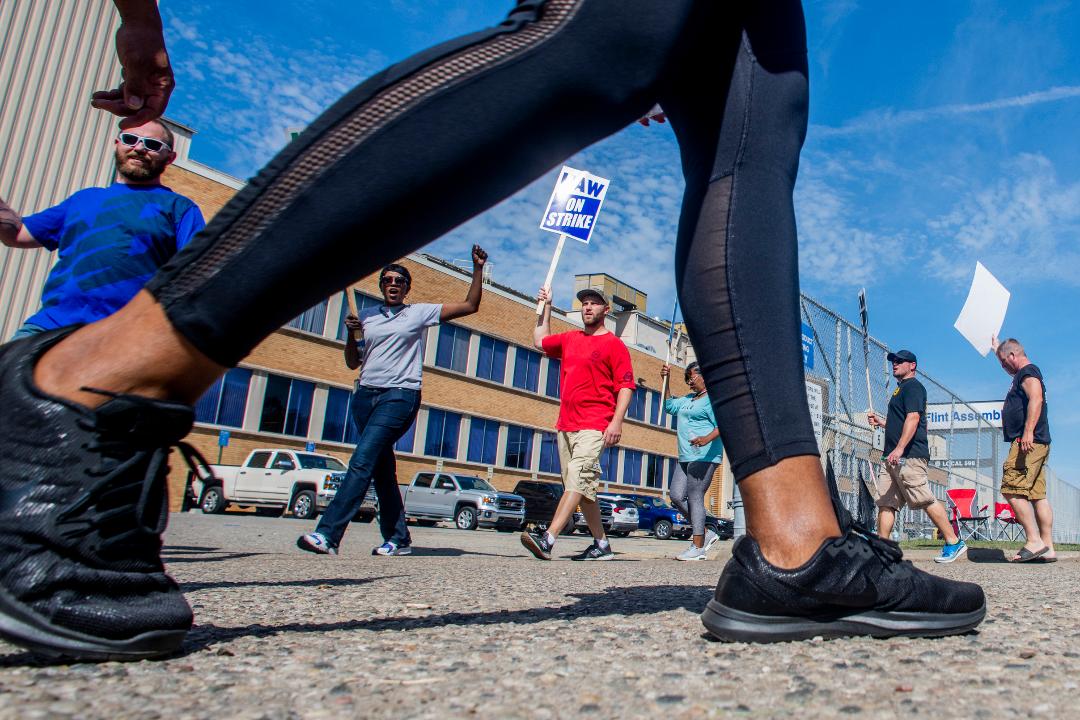GM-UAW talks take turn for worse; settlement not near
It was a rough weekend for settlement talks in the now 4 week old strike by UAW workers against General Motors.
Talks took a turn for the worse, hitting a big snag over product commitments for U.S. factories, a union official wrote in an email to members.
The letter from UAW Vice President Terry Dittes casts doubt on whether there will be a quick settlement in the contract dispute, which sent 49,000 workers to the picket lines on Sept. 16, crippling GM's factories.
The letter says the union presented a proposal to the company Saturday. GM responded Sunday morning by reverting back to an offer that had been rejected and made few changes.
The company's proposal did nothing to address issues such as job security for members during the term of the four-year contract.
GET FOX BUSINESS ON THE GO BY CLICKING HERE
In a statement, GM said it continues to negotiate in good faith "with very good proposals that benefit employees today and builds a stronger future for all of us."
The company said it is committed to talking around the clock to resolve the dispute.
A person briefed on the talks said Sunday that the union voiced concerns about GM increasing production in Mexico, where it now builds pickup trucks, small cars and two SUVs.
The person, who spoke on condition of anonymity because the talks are private, said both sides are far apart on guarantees of new products in U.S. factories.
GM leads all companies in automobiles produced in Mexico at just over 833,000 last year, according to LMC and the Center for Automotive Research, a think-tank based in Ann Arbor, Michigan. Of GM vehicles sold in the U.S., 22 percent are produced in Mexico.
GM's U.S. factories have been shut down since the workers walked out Sept. 16. Parts shortages also have forced the company to close plants in Mexico and Canada.
CLICK HERE TO READ MORE ON FOX BUSINESS
Industry analysts say GM is losing more than $80 million a day as the strike continues. Workers earn $250 per week in strike pay while they're on the picket lines, about one-fifth of what they normally make.
The Associated Press contributed to this article.




















